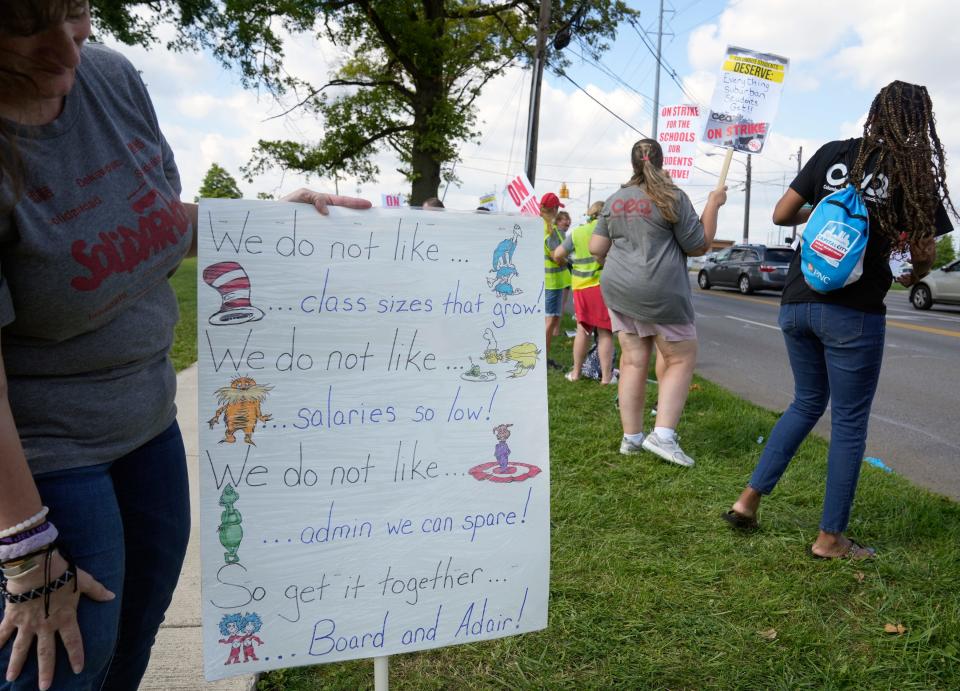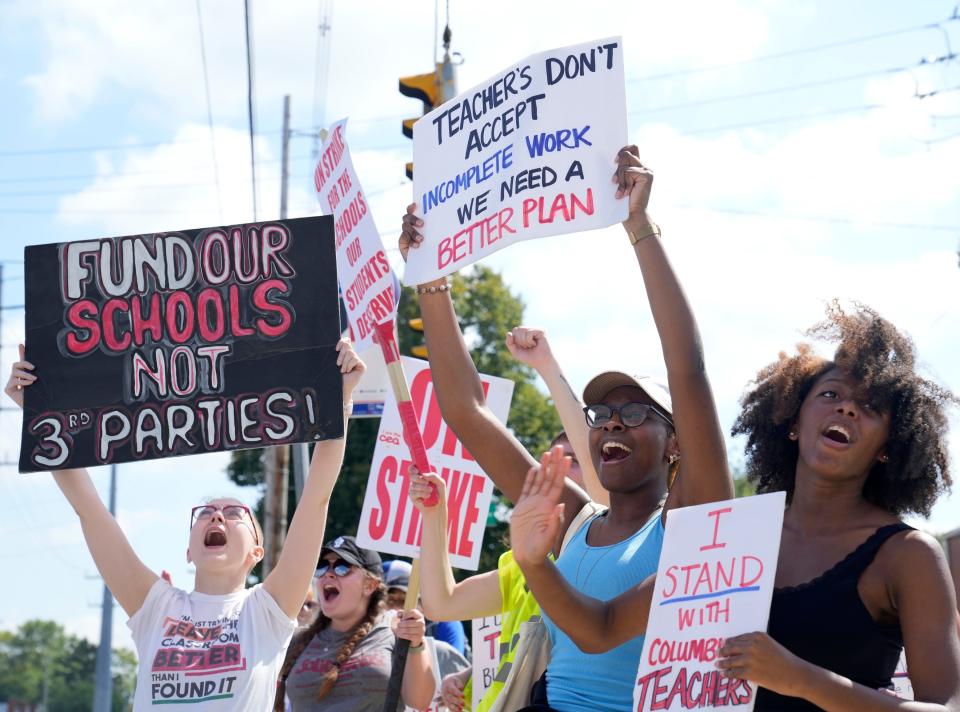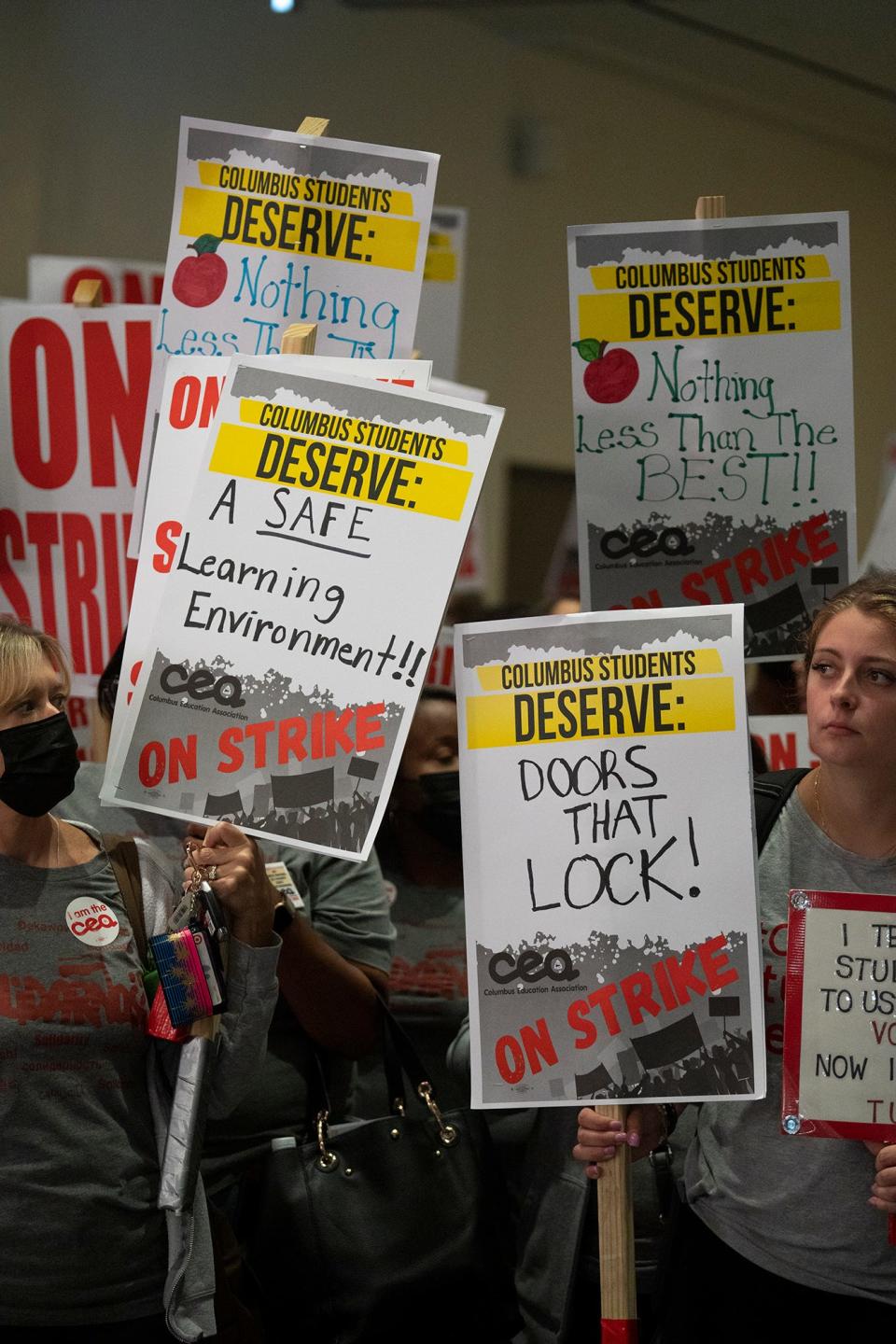Striking teachers are not 'failing' students, they are speaking 'truth to power'| Opinion
Kurt Ostrow studies creative writing at The Ohio State University. He is public school teacher on break from the K-12 classroom.

By going out on strike, the Columbus Educators Association is reminding the city what courage looks like. I say courage because the union knows striking can be unpopular.
The Dispatch's editorial board, for example, flunked its 4,500 members, claiming they are failing their students. But it’s clear to me that the Columbus Educators Association has chosen — in the language of contract negotiations — the last, best option on behalf of themselves and their students: a strike.
Columbus teacher on strike: 'We cannot be silent... we know that our students are not OK'
Before moving to Columbus, I taught high school English in a state where public-sector strikes have been illegal for decades. I witnessed firsthand how this prohibition hamstrings unions at the bargaining table.
Perhaps more importantly, I realized that it robs educators of the best lessons they can ever teach their students: how to organize, how to insist on their dignity, how to speak truth to power, and how to win.
Our View: School board, union get 'F' for failing students in contract negotiation
Though I admit, on this front, Gen Z students are wise beyond their years.
They have organized fearlessly in the face of police brutality, school shootings, and climate chaos. As a teacher, I was led out of class year after year by my students, righteous and rebellious.
More:How to submit guest opinion columns to the Columbus Dispatch
And as a member of Sunrise, the national youth movement to stop climate change and create millions of good jobs, I can’t envision a livable future without more and longer strikes from educators and students alike.
Greedy CEOs and spineless politicians have backed poor and working people into a corner. Or rather, they are holding our feet to the fire. Here in Columbus, students can’t learn in oppressively hot school buildings. Around the world, rising temperatures have intensified heatwaves, wildfires, storms, droughts, and famines.

“What do we do when we’re under attack?” asks the protest chant. “Unite, fight back!”
Strikes are, in my reading of history, the most powerful tool we have to fight back, to make change nonviolently. And more and more people are realizing that we need massive social and economic change. Amazon, Apple, and Starbucks workers are unionizing.
Americans are going on strike in record numbers, with educators out in front. When we have exhausted our options —at the bargaining table, school board, city hall — our only recourse is to withhold our labor and remind those in power that they need us more than we need them.
Still, I would never minimize the impacts of shuttered school buildings, especially after the misery of remote learning induced by the pandemic. In the short-term, I acknowledge that strikes are a burden to families short on housing, food, and child care.
More on Columbus teacher's strike:Columbus Mayor Andrew Ginther, others urge sides back to table in CCS teachers strike

But let’s take a wider view.
When the Columbus Educators Association wins, they will guarantee air conditioning; music, art, and physical education; and smaller class sizes for all of Columbus’ students. And let’s not conflate a bungled pandemic with the Columbus Educators Association's deliberate, nearly unanimous vote to strike — their first in almost 50 years.
Columbus educators are on the picket line because they need to be, and students, families, and supporters should join them as much as possible. It’s the best education we can get.
Kurt Ostrow studies creative writing at The Ohio State University. He is public school teacher on break from the K-12 classroom.
This article originally appeared on The Columbus Dispatch: Columbus city schools strike: Why are teachers striking? Opinion

